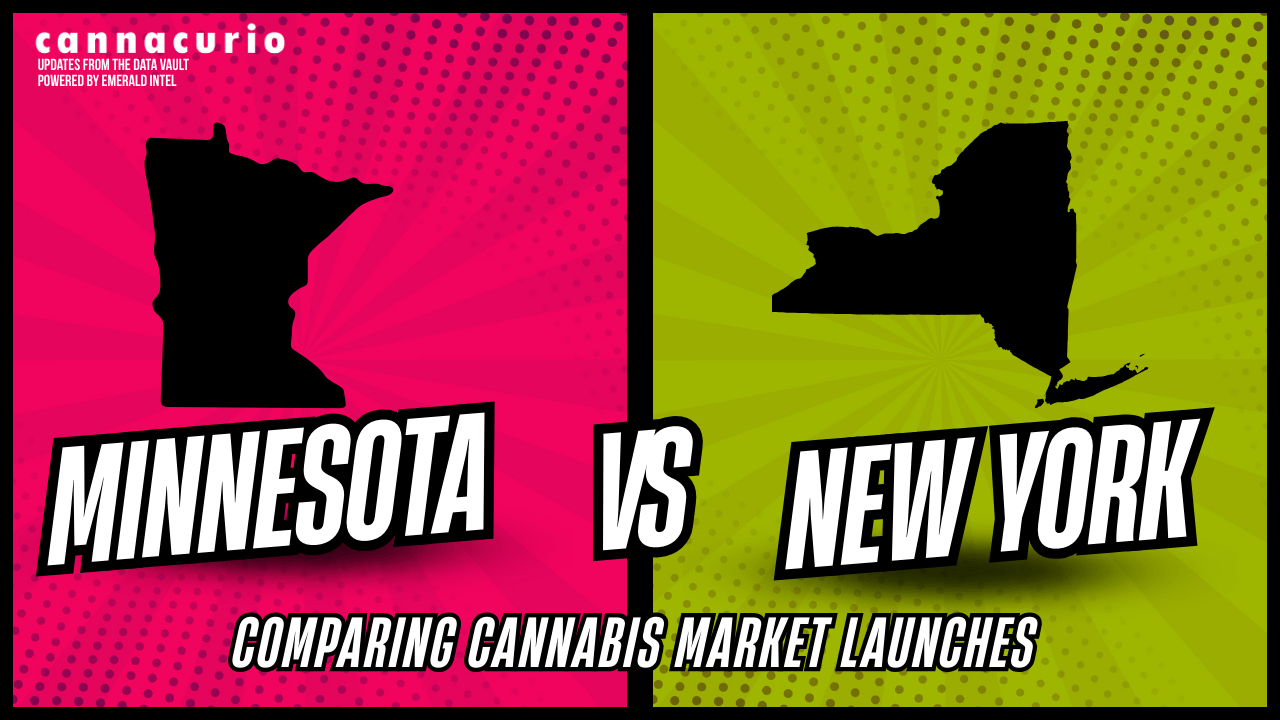
The Trouble with Email Marketing for Marijuana Businesses
Given the many restrictions that marijuana and marijuana-related businesses face when trying to promote their brands, products, and services, it would seem that email marketing is a great option for these businesses. Every state’s laws are different, but most marijuana businesses across the country can’t advertise in media that doesn’t have an audience which is primarily made up of adults, and they aren’t allowed to advertise near schools or places where children spend a lot of time. In many states, marijuana businesses cannot advertise on vehicles or in arenas, stadiums, shopping malls, or anywhere indoors where children are permitted. The list of allowed advertising options keeps getting smaller and smaller!
With all of the marketing challenges marijuana-related businesses face due to strict advertising laws, email marketing seems like a great way to connect with consumers. After all, if the business is mailing to a list of people who have opted in to receive messages from the company, then they obviously want information about marijuana products and the cannabis industry, right?
Not so fast.
Email marketing only works when the email marketing software provider allows businesses to send messages related to marijuana brands, products, and services to their lists. The reality is that marijuana is still illegal at the federal level, and that means most email marketing application providers don’t like marijuana-related businesses. Email marketing application providers require that their users follow “acceptable terms of use” and those terms typically prohibit sending messages about illegal drugs, goods, or services – including marijuana.
But what if the marijuana business only sends email marketing messages to subscribers in states that have legalized medical and/or recreational marijuana? Would email marketing providers like MailChimp, aWeber, Infusionsoft, Ontraport, Marketo, SharpSpring, ConvertKit, Constant Contact, iContact, GetResponse, SendGrid, MyEmma, Hubspot, ActiveCampaign, Campaign Monitor, and so on allow that?
And what about businesses that operate in the marijuana industry but don’t sell marijuana products of any kind? I’m talking about businesses like Cannabiz Media, which provides data related to marijuana business licenses (growers, processors, dispensaries, and testing labs) primarily to other businesses. Data about businesses isn’t an illegal product. Would email marketing providers allow that?
The answer is probably not if Cannabiz Media’s experience is any indication. Last year, Cannabiz Media’s email provider, MailChimp, sent a message with no advance notice stating that the company’s email marketing account was suspended because it operates in the marijuana industry.
Cannabiz Media isn’t the first company to have its MailChimp account suspended without notice and with no recourse. Do a Google search and you’ll find many of these stories. In fact, I’ve been the victim of the out-of-the-blue, erroneous, no recourse MailChimp account suspension in the past as well (for a completely different business and account). It’s a common problem.
What does an email marketing account suspension mean? Be very careful because it could mean you lose access to the subscriber list you’ve been working so hard to build and your entire email history.
So what’s a marijuana-related business to do? How would people have mined for gold in California if there weren’t people advertising picks and shovels along the way? How can companies that don’t actually sell an illegal product but do sell products and services related to the industry promote themselves if they’re restricted from most promotional tactics either by state laws, local regulations, or email marketing providers’ prohibited content policies?
The Low-Down on Email Marketing Providers’ Acceptable Use Policies
I searched about a dozen email marketing providers’ websites to find information about their acceptable use policies and prohibited content. Surprisingly, there were several websites where I simply couldn’t find this information. Others had it buried in legalese. Long story short, here’s what I found (in alphabetical order):
- ActiveCampaign Acceptable Use Policy: The policy does not specifically state no marijuana businesses but in the Content and Industries Subject to Additional Scrutiny section, the policy does say you cannot use the service to send messages related to illegal substances.
- Campaign Monitor Policies: The policy does not specifically state no marijuana businesses but in Section 4B, it states that users agree they will not “use the service to transmit or solicit material that contains, links to, or displays … illegal drugs … or other content that we deem inappropriate in our sole discretion.”
- Constant Contact Prohibited Content and Commerce Statement: The policy does not specifically state no marijuana businesses, but it does say the Constant Contact service cannot be used by any person or organization who “sells or promotes any products or services that are unlawful in the location at which the content is posted or received” or who “provides, sells, or offers to sell products, content, or services related to illegal drugs and contraband that are unlawful in the location at which the content is posted or received.”
- GetResponse Terms of Service: The policy does not specifically state no marijuana businesses, but in Section 6, there is a link to a list of things customers are not allowed to use the service for, which includes using the service to “stream, disclose, engage and/or offer to sell, either directly or indirectly, any goods or services that market for drugs of any kind, products related to drugs, symbols related to drugs, and the use of drugs of any kind.”
- Hubspot Acceptable Use Policy: The policy does not specifically state no marijuana businesses, but in Section 7, it does say no “unlawful material” and no content that is “in violation of any applicable local, state, national, or international law or regulation.”
- Infusionsoft Acceptable Use Policy: The policy does not specifically state no marijuana businesses, but in Section 4a, it states your account may be terminated if you engage in a practice such as illegal drugs. Also, Section 4a explains, “Infusionsoft may terminate Customer’s account if Customer engages in any practice that is, in Infusionsoft’s sole discretion, objectionable, unlawful, obscene, pornographic, threatening, abusive, libelous or hateful, or that encourages conduct which would constitute a criminal offense, give rise to civil liability, or otherwise violate any local, state, national or international law.” In other words, it’s all up to Infusionsoft.
- MailChimp Acceptable Use Policy: The policy does not specifically state no marijuana businesses, but in the “Prohibited Content” section, it says you may not send emails “to promote anything illegal” or “emails offering to sell illegal goods or services.”
A common phrase found in most email marketing providers’ legal language is “at our sole discretion” or similar verbiage. In other words, there are many ways the email marketing provider can suspend or terminate your account at their own discretion, including if your business doesn’t sell marijuana products at all. It’s a handy catch-all that you should be aware of. When you’re using a SaaS product, you’re always at their mercy and nothing is ever guaranteed.
What Should Marijuana Businesses Do?
My recommendation is to speak directly with any email marketing provider you’re thinking of using (or are already using) and get an answer about whether or not your marijuana-related business can use the service to promote its products and services to your subscribers without fear of having your account suspended one day. Be sure to get the answer in writing!
Another option is to subscribe to the Cannabiz Media Licenses Database and use the integrated email marketing platform that Cannabiz Media built after its own email marketing account was suspended by MailChimp last year. This is the best option to ensure your list and your efforts won’t disappear without notice one day. You’ll get a full-featured email marketing and customer relationship management (CRM) tool you can feel confident using, and you’ll also get information on over 25,000 licensed marijuana and hemp operations across 32 states and Canada for sales prospecting and marketing.
Bottom-line, email marketing is a great opportunity for marijuana-related businesses, but while marijuana, itself, is still illegal at the federal level, many email marketing providers are sticking to the old rules. Fortunately, Cannabiz Media offers a reliable solution.
Originally published 6/23/17. Updated 5/12/18.
Need more insights?



.png)